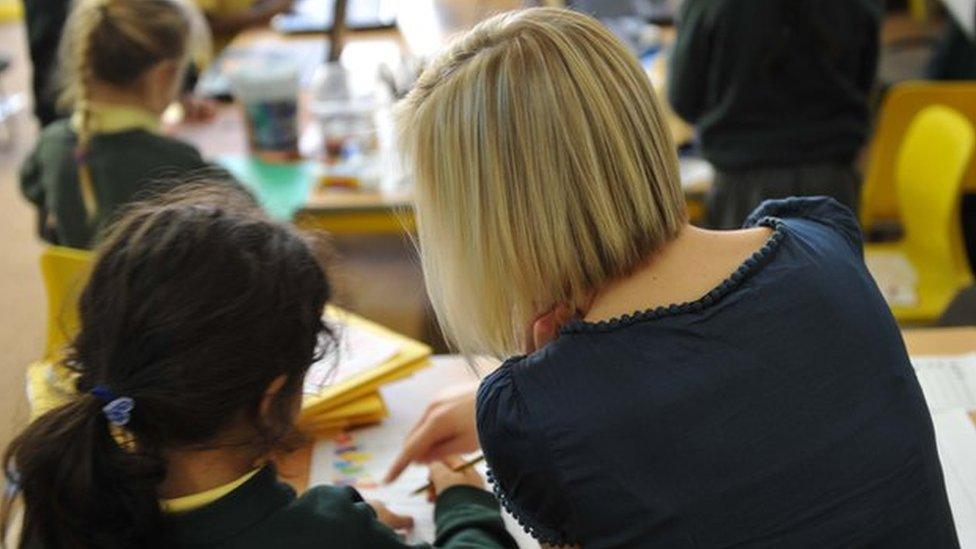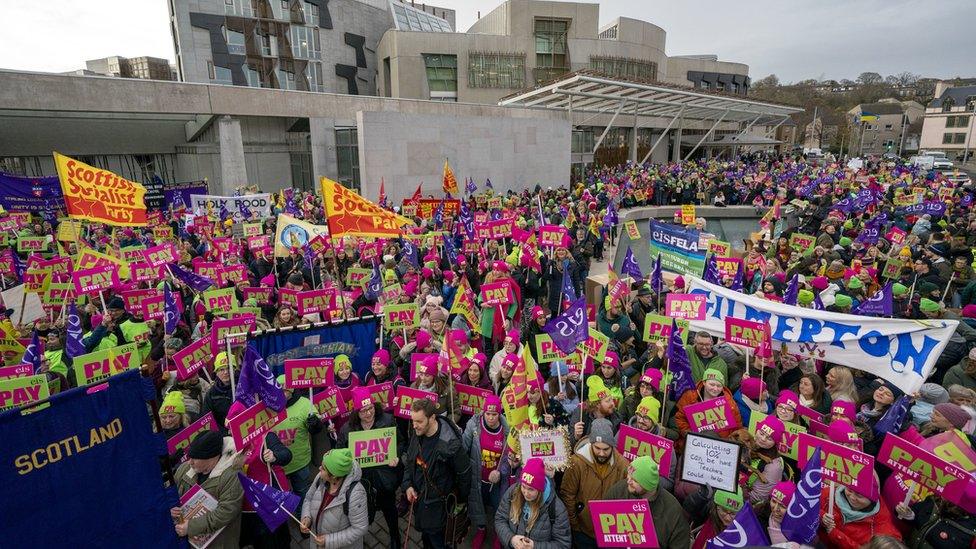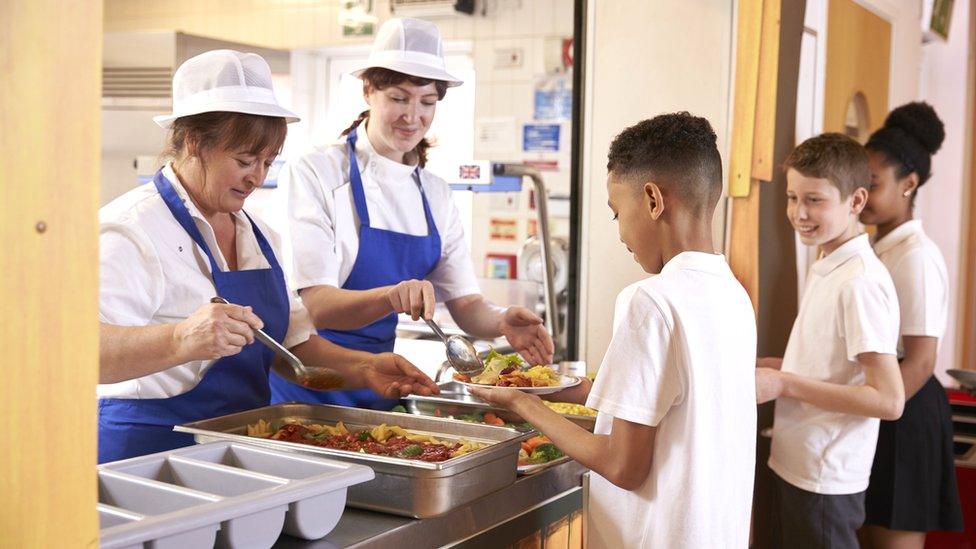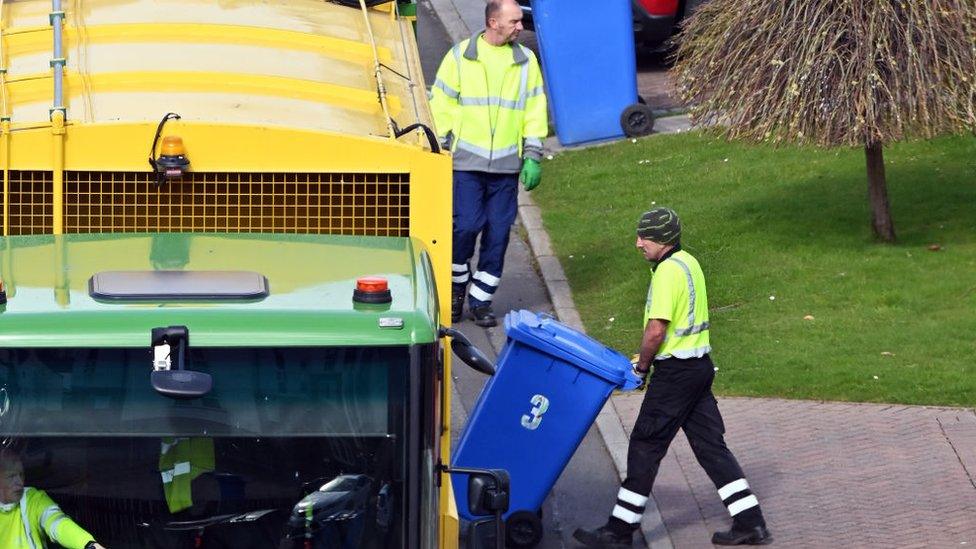School staff to strike in 10 Scottish council areas
- Published
- comments

Non-teaching staff such as learning support and janitorial workers will go on strike next month
Non-teaching school staff in 10 council areas will go on strike on 13 and 14 September, GMB Scotland has announced.
The areas affected are Aberdeen, Clackmannanshire, Comhairle Nan Eilean Siar, Dundee, East Dunbartonshire, Falkirk, Glasgow, Orkney, Renfrewshire and South Ayrshire.
GMB Scotland's members rejected a pay offer of 5.5% in April.
The union said the offer "does not come close" to matching the cost of living and warned of disruption in schools.
Staff in schools and early years working across catering, cleaning, pupil support, administration and janitorial services will take part in the action.
GMB Scotland said Cosla, the body which represents local authorities, had refused to revise the pay offer or ask the Scottish government for support.
Cosla previously said the "strong offer" raised the local government living wage by 99p to £11.84 per hour.
About 20,000 GMB members voted against the deal in April.
Disruption warning
Unite members in 10 Scottish councils also voted to strike over pay after the summer break - although dates have not yet been confirmed.
Unison has yet to announce the results of its strike ballot to members.
GMB Scotland senior organiser Keir Greenaway said: "Scotland stands on the shoulders of our local authority workers and the value of their work must be reflected in their salaries.
"Cosla has refused to seriously engage with our members during what has been a protracted, frustrating process. If they had, parents and pupils would not now be facing disruption.
"Cosla and Scottish ministers need to engage now or risk turning a crisis into a calamity."
A Cosla spokeswoman said council leaders had made a "strong offer" which clearly illustrates the value they place on their workforce.
She said: "While the offer value in year is 5.5%, the average uplift on salaries going into the next financial year is 7%. Those on the Scottish Local Government Living Wage would get 9.12% and those at higher grades, where councils are experiencing severe recruitment challenges, would see 6.05%."

Hundreds of striking teachers joined a rally outside the Scottish Parliament in November last year
Schools closures were expected across Scotland this time last year due to planned council strikes which included non-teaching staff. This was called off after a new pay offer was accepted.
In November teachers joined mass rallies in the first national schools strike in over a decade - resulting in the closure of nearly every primary and secondary school in the country, and many council nurseries.
This escalated when teachers took part in rolling strikes across every council area earlier this year. Action was eventually called off in March following a new pay offer.


The GMB union is giving councils plenty of warning of possible strike dates.
It insists there is still plenty of time to resolve the pay dispute.
But it knows that even the possibility of strikes which may close schools is a powerful weapon.
Last year, a council pay dispute led to rubbish building up in Edinburgh and other cities. A settlement was made possible after the Scottish government gave councils more money to help them increase their pay offer.
So far, council body Cosla has not asked the government for more money for pay.
Some council leaders believe a bigger pay offer may only be possible if the government helps to finance it.
Without a bigger pay offer, however it is financed, strikes would seem inevitable.
First Minister Humza Yousaf is proud of the fact that strikes in the NHS in Scotland were avoided.
But could he soon be facing the second council strike within barely a year? And although teachers are not involved, it would also be the second time in recent months when education has been affected by industrial action.
- Published7 August 2023

- Published21 April 2023
